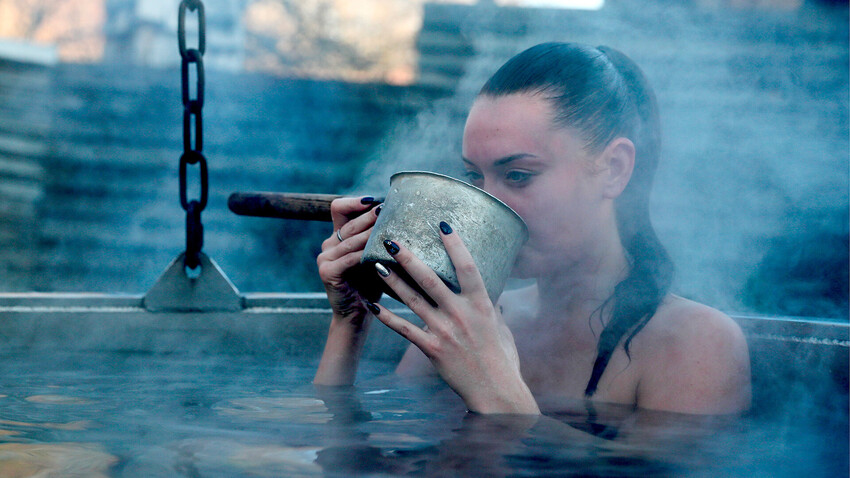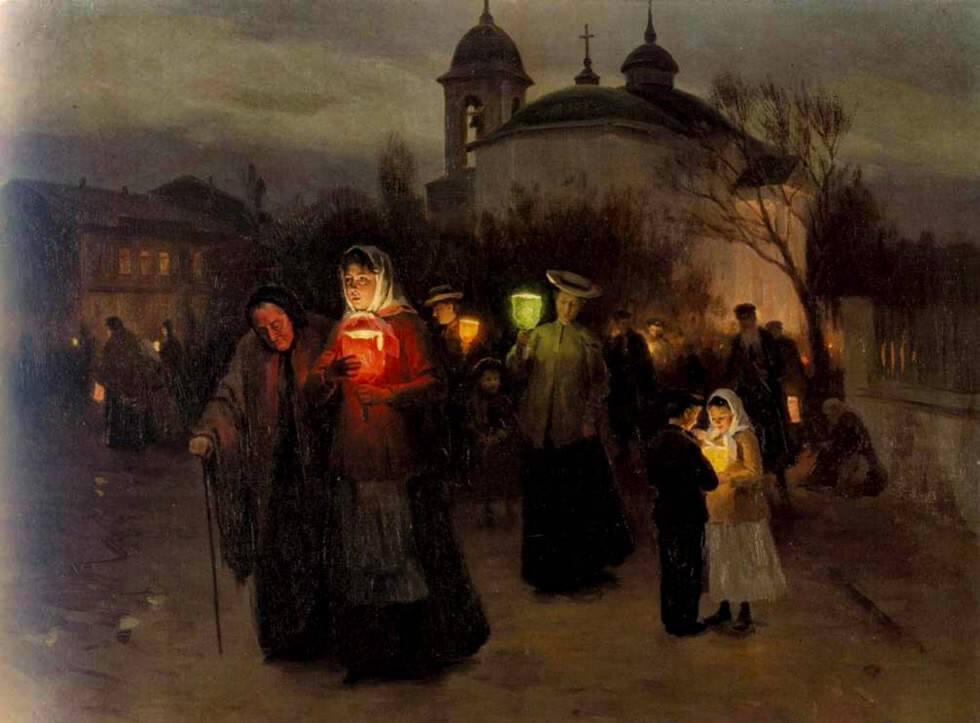
This is what people call the Great and Holy Thursday, which falls on the last week of the Great Lent before Easter. On that day, believers strive to clean their souls, their bodies and their dwellings. This day also marks the beginning of preparations for Easter.
In Russia, this day began with going to a banya. One needed to bathe before sunrise, in order to symbolically wash away all one’s sins of the year.
“This is a purely peasant tradition, because peasants didn’t wash themselves all the time, but only on special occasions. Since everyone took communion on Thursday, people washed themselves and prepared for this sacrament, put on a clean shirt,” Protoiereus Andrey Lorgus explains.
In Russia, it was also custom to get a haircut on that day. With the same goal – to “cut off” one’s sins.
After the banya and cleaning rituals, believers headed to the church, where they confessed and took communion. People often took a lit candle from the church service back home with them – it protected one’s home from fires and one’s family from illnesses.

N. Pimonenko. Holy Thursday
Public domainThen, a grand cleaning of the home commenced. And one had to get all one’s things in order. Getting your homestead tasks done over the following two days – Great Friday and Great Saturday – is prohibited. In old times, they would say: “Dust and dirt can get in Jesus’ eyes!”
If using any of Russia Beyond's content, partly or in full, always provide an active hyperlink to the original material.
Subscribe
to our newsletter!
Get the week's best stories straight to your inbox